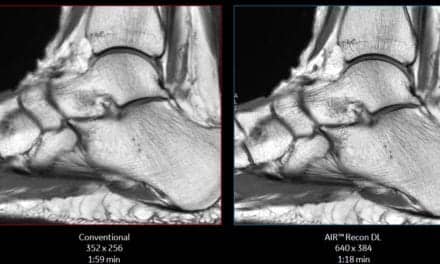Oxford, UK-based Optellum, a lung health company aiming to redefine early diagnosis and treatment of lung disease, received FDA 510(k) clearance for its Virtual Nodule Clinic. This product is AI-powered clinical decision support software for pulmonologists and radiologists managing patients with small lesions in the lungs called nodules that could represent early-stage lung cancer. This is the first such application of AI decision support for early lung cancer diagnosis cleared by the FDA.
One of the greatest opportunities to diagnose more small pre-symptomatic lung cancers earlier is presented by the two million patients in the United States every year who have a lung nodule identified incidentally during chest CT scans ordered for other reasons, such as emergency room or cardiac scans. Current guidelines mandate follow-up over one to two years to determine whether a nodule is cancerous. However, over 60% of these patients do not receive guideline-recommended follow-up, severely limiting opportunities for early intervention and treatment. Patients who do receive recommended follow-up often require multiple imaging scans and biopsies, and sometimes unnecessary invasive procedures including surgical biopsies and lung resections, before arriving at a definite diagnosis.
Optellum’s Virtual Nodule Clinic is designed to solve this problem by enabling pulmonologists to identify and track at-risk patients with suspicious lung nodules and make optimal clinical management decisions for those patients. The software features a clinically validated Lung Cancer Prediction (LCP) score designed to empower clinicians to more accurately and consistently evaluate lung cancer risk and make more optimal clinical decisions that could save more patient lives.
Optellum’s LCP score is powered by the world’s first FDA-cleared imaging AI/”Radiomics”-based digital biomarker for lung cancer. The score is computed from full patterns of 3D pixels in standard images captured by computed tomography (CT) scanners, which are already available and the standard of care in every modern hospital.
Physician use of Virtual Nodule Clinic is shown to improve diagnostic accuracy and clinical decision-making. In the clinical study which underpins the FDA clearance, all readers in the study, which included pulmonologists and radiologists of various levels of expertise, from generalists to experts, showed a statistically significant improvement in their accuracy for diagnosing lung nodules when using the Optellum software, with an average improvement of 6.85 Area Under the Curve (AUC) points (p<0.001) and a range of 2.4 to 12.1 AUC points for an individual physician.
In this study, AUC measured readers’ average accuracy in correctly classifying nodules as malignant or benign. In addition to improved diagnostic accuracy, use of the Optellum software resulted in more consistency among physicians.
“We are delighted to launch the world’s first AI-based decision support for early lung cancer diagnosis cleared by the FDA,” says Václav Potěšil, PhD, co-founder and CEO of Optellum. “This clearance will ensure clinicians have the clinical decision support they need to diagnose and treat lung cancer at the earliest possible stage, harnessing the power of physicians and AI working together—to the benefit of patients.”






